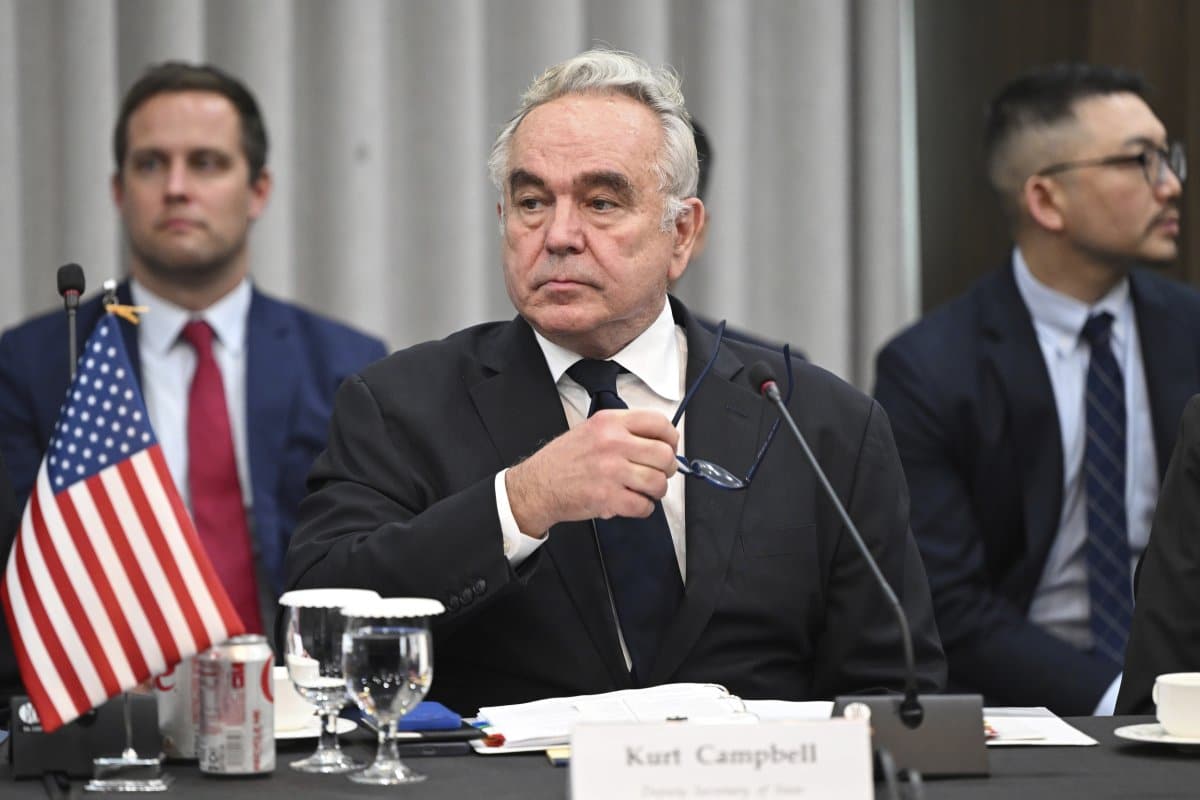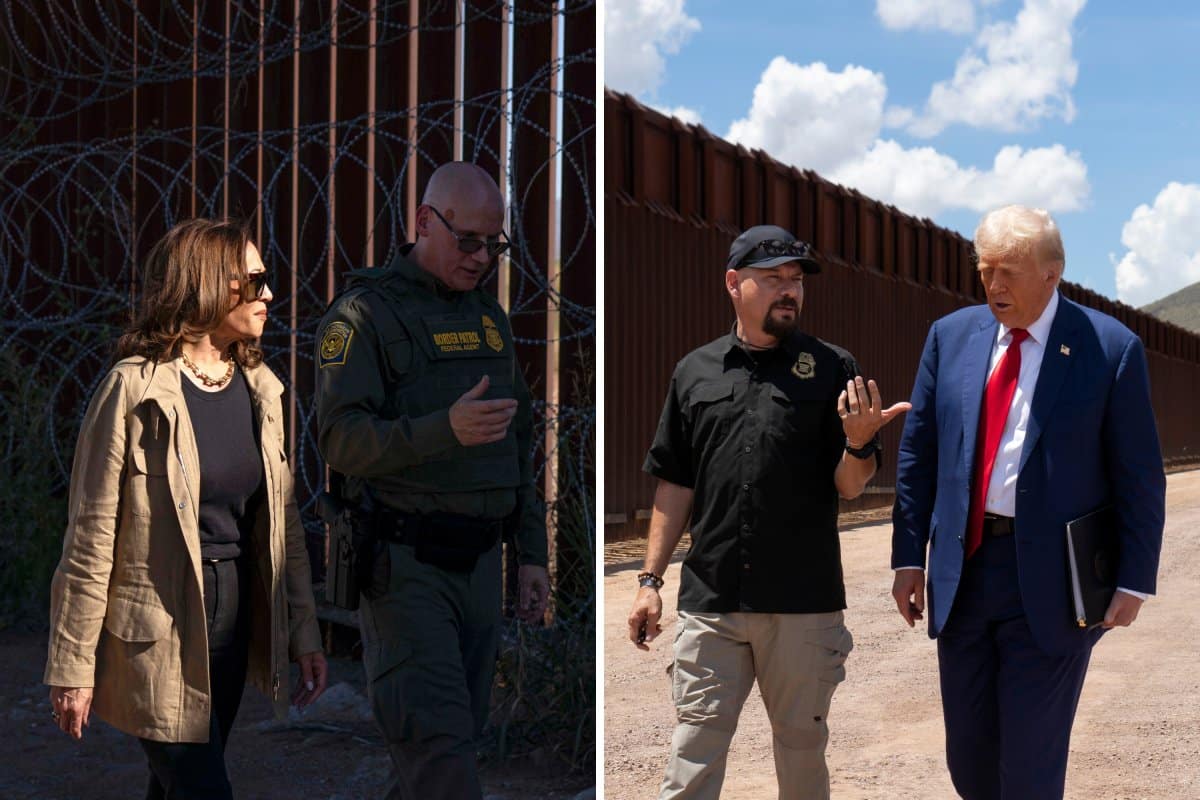The United States has expressed growing concern over North Korea’s increasing military support for Russia in its ongoing war against Ukraine.
Deputy Secretary of State Kurt Campbell said on Wednesday that Washington and its allies are alarmed by Pyongyang’s nuclear threats and the growing evidence that North Korea is supplying materials, such as artillery and missiles, to aid Moscow.
Campbell spoke with reporters after discussions with South Korean and Japanese officials about renewing international pressure on North Korea. His comments came as tensions on the Korean Peninsula remain high, with Pyongyang ramping up weapons tests and threats against South Korea.
North Korea’s expanding military support for Russia has become a point of concern for the U.S. and its allies.

Portraits of Russian President Vladimir Putin near national flags of North Korea and Russia in Pyongyang on June 20 displayed for Putin’s summit with North Korean leader Kim Jong Un. Moscow vetoed a U.N. resolution on monitoring sanctions in March, potentially shielding its arms trade with Pyongyang.
KIM WON JIN/AFP via Getty Images
While addressing claims made by Ukrainian President Volodymyr Zelensky that Pyongyang is sending soldiers to fight in Ukraine, Campbell said the U.S. could not confirm the reports. However, he emphasized that Washington is “monitoring the situation closely” and remains concerned about North Korea’s involvement.
Ukrainian media reported that six North Korean soldiers were killed in a missile strike on October 3, raising questions about Pyongyang’s potential deployment of personnel to the front lines.
The reports followed claims from Ukrainian officials that North Korean troops have been seen deserting shortly after their arrival in Ukraine, hinting at low morale or mismanagement.

United States Deputy Secretary of State Kurt Campbell attends a meeting at the Foreign Ministry in Seoul, South Korea, on October 16. North Korea has sent more than 1 million artillery shells to Russia in recent months, raising concerns among Ukraine’s allies.
Jung Yeon-je/Pool Photo via AP
Russia’s ties with North Korea have grown since the start of the Ukraine war on February 24, 2022, particularly as Moscow faces increasing international isolation. In March, Russia vetoed a United Nations Security Council resolution, effectively ending international monitoring of sanctions against North Korea.
Western nations have accused Moscow of attempting to shield its arms purchases from Pyongyang in order to sustain its attacks in Ukraine.
On Wednesday, the U.S., South Korea, Japan and eight other Western governments announced plans to launch a multinational team to monitor North Korean sanctions enforcement. The move is aimed at countering North Korea’s arms sales to Russia, which Campbell said are contributing to instability in Europe.
“We are concerned by them and […] we agreed that we will continue to monitor the situation closely,” Campbell said.
North Korea’s involvement in the Russia-Ukraine war also comes as it continues to threaten South Korea. Pyongyang has accused Seoul of using drones to drop propaganda leaflets over its territory and threatened to retaliate if such actions continue.
In a symbolic move on Tuesday, North Korea demolished parts of unused road and rail routes that once connected it to South Korea. The demonstration, aimed at showcasing its frustration with the South’s conservative government, underscores the heightened tensions on the peninsula.
Since 2022, North Korean leader Kim Jong Un has taken advantage of the distraction caused by Russia’s war in Ukraine to accelerate weapons testing. In response, Washington, Seoul and Tokyo have increased joint military exercises and strengthened their nuclear deterrent strategies.
Following the talks with Campbell and Japanese Vice Foreign Minister Masataka Okano, South Korean Vice Foreign Minister Kim Hong Kyun condemned North Korea’s provocations.
“We have agreed to maintain a solid South Korea-U.S. combined posture to respond firmly to North Korean provocations,” Kim said.
This article includes reporting from The Associated Press.








